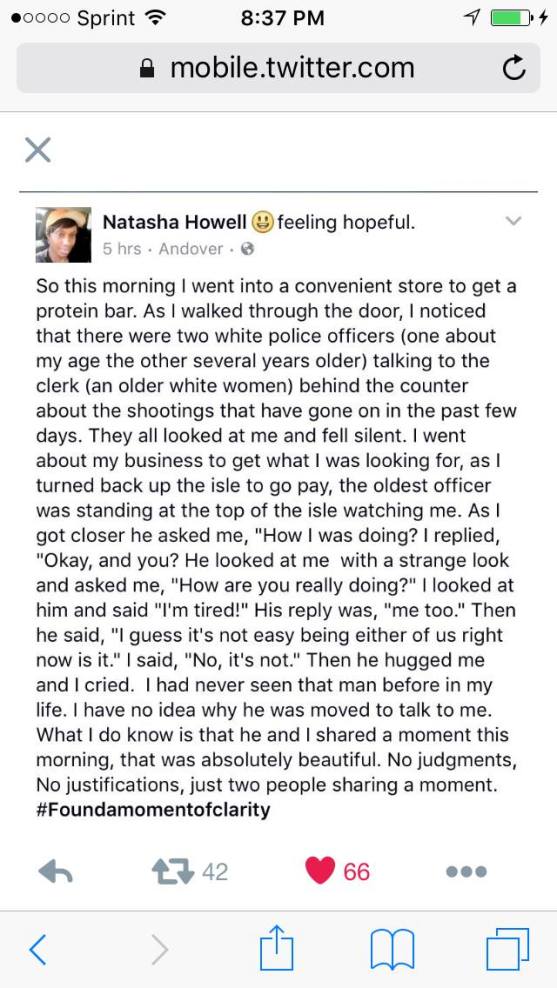
It is Monday morning and I walk through weekend trash to get to work. The tourists are either long gone, or still asleep in hotel rooms; the homeless are just waking in doorways and shelters across the city.
As I walk, I think about my friend whose father died last Thursday. The news came late in the day, and as I heard I breathed a sigh of sadness and relief. It has been a long and painful journey for her and the entire family. By contrast, two days later we celebrated a beautiful wedding where Greek Cypriots joined with Bulgarians in a celebration of life and love.
This is our world – sorrow and joy co-mingle; mercy and grace cover both.
I sigh. I am tired and the Divine Liturgy of yesterday seems long ago and much removed from my current reality. And yet, that is my daily challenge: Remembering what is real. Taking that which is good and right and holy and translating it into my current reality. This is where theology meets reality – Good theology doesn’t reject reality; it transforms it.
I remember what I wrote a year ago, and I reread it because I need to remember what is real.
The movie A Beautiful Mind is based on the story of a brilliant mathematician, John Nash. Nash is as arrogant as he is brilliant, but that changes as he goes through an excruciating process of being diagnosed as a schizophrenic. The mind that served him so well betrays him and he is left wondering what is real and what is delusional.
The viewer of the film walks the journey with the character (played by Russel Crowe) and we enter a world of frenetic paranoia and misbelief. We experience the disease and throughout the process we too are left wondering what is real.
There are many moments in the film, but for me one particularly poignant moment sums up the entire story. John Nash is in their bedroom sitting on the bed. He is in deep distress. He is questioning everything. He doesn’t know what is real and what is a hallucination, the result of a disease taking over his mind. In an unforgettable moment, his wife takes her hands and puts them on his face. “You want to know what is real?” she says “This is real.” She then takes his hands and places them on her face and then her heart.
“This is real.”
What is real? The question resonates through the ages. Perhaps someone with mental illness has to face it more directly then others, but we all have to ask this question – what is real?
From the time we are young our world is divided into the secular and the sacred; the real and the ‘not real.’ We go away on a weekend of prayer or retreat, and we are told at the end “Tomorrow you will go back to reality. You will leave this mountaintop experience. You can’t live in it forever.” We are told to “remember the mountain top when we get back to reality.” We soberly nod, we will try and remember all this when we are back to real life. After all, we reason, the disciples didn’t live on the Mount of Transfiguration forever.
But what if we have ‘real’ wrong?
I am taken back to the scene in A Beautiful Mind. What is real?
“You want to know what is real? I’ll tell you what is real.”
Real is the Holy Trinity, mystery and awe surrounding the three in one.
Real is the body and the blood, Christ and his church.
Real is forgiveness, mercy, and grace.
What is real? Let me take your hands and show you what is real.
Real is communion with the Father, the Son, and the Holy Spirit. Real is communion with others in this journey. Real is knowing that the eternal is forever and the now is just now. Real is knowing there is a greater reality in this thing called life.
We are tricked and trapped into believing that everything is reality, except the holy.
But perhaps it is in the holy that we find our truest reality.
Last year when I wrote this, my mom responded with this: “This is such a good reminder to keep our eyes – our attention and our focus – on what we know is real even though everything around us is loudly or subtly proclaiming a different reality. It reminded me of the scene near the end of C.S. Lewis’s The Silver Chair when the Queen of the Underworld is playing her soft music and there is a warm fire with sweet incense wafting from it. Jill, Eustace and the Prince are slowly succumbing, repeating the Queen’s words that the sun, Narnia, the stars, Aslan, are all just a nice dream. Puddleglum the Marshwiggle, pessimist that he is, will have none of it. He stomps on her fire, burning his feet, and says this:
Suppose we have only dreamed, or made up, all those things-trees and grass and sun and moon and stars and Aslan himself. Suppose we have. Then all I can say is that, in that case, the made-up things seem a good deal more important than the real ones. Suppose this black pit of a kingdom of yours is the only world. Well, it strikes me as a pretty poor one. And that’s a funny thing, when you come to think of it. We’re just babies making up a game, if you’re right. But four babies playing a game can make a play-world which licks your real world hollow. That’s why I’m going to stand by the play world.
I’m on Aslan’s side even if there isn’t any Aslan to lead it. I’m going to live as like a Narnian as I can even if there isn’t any Narnia.
And with that, he wakes them up.














